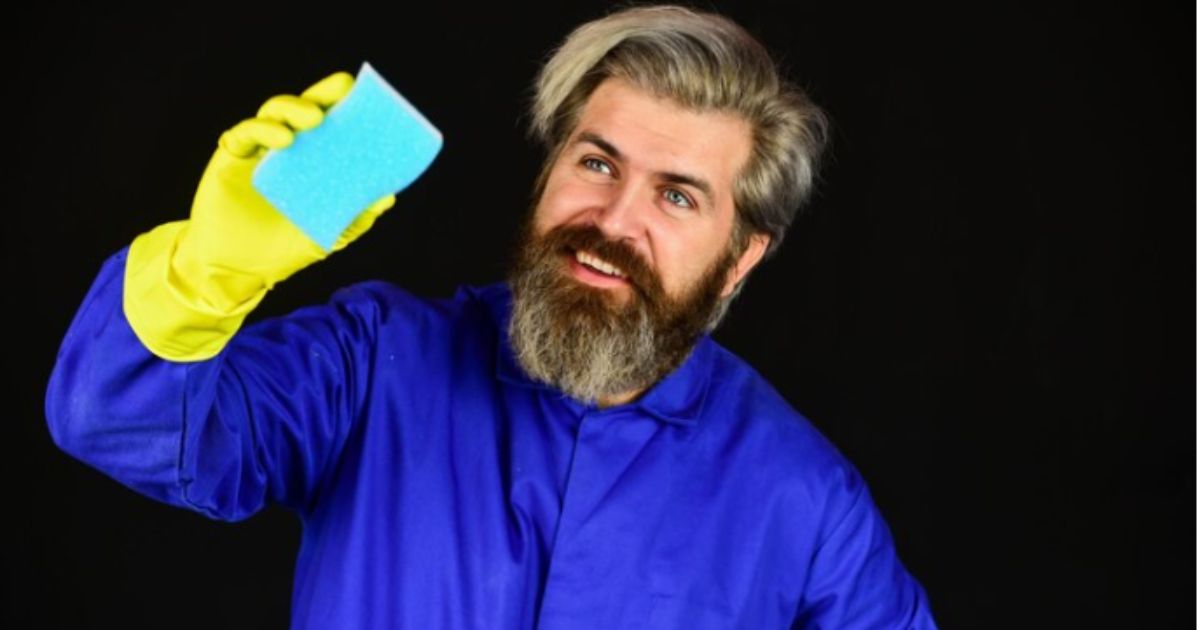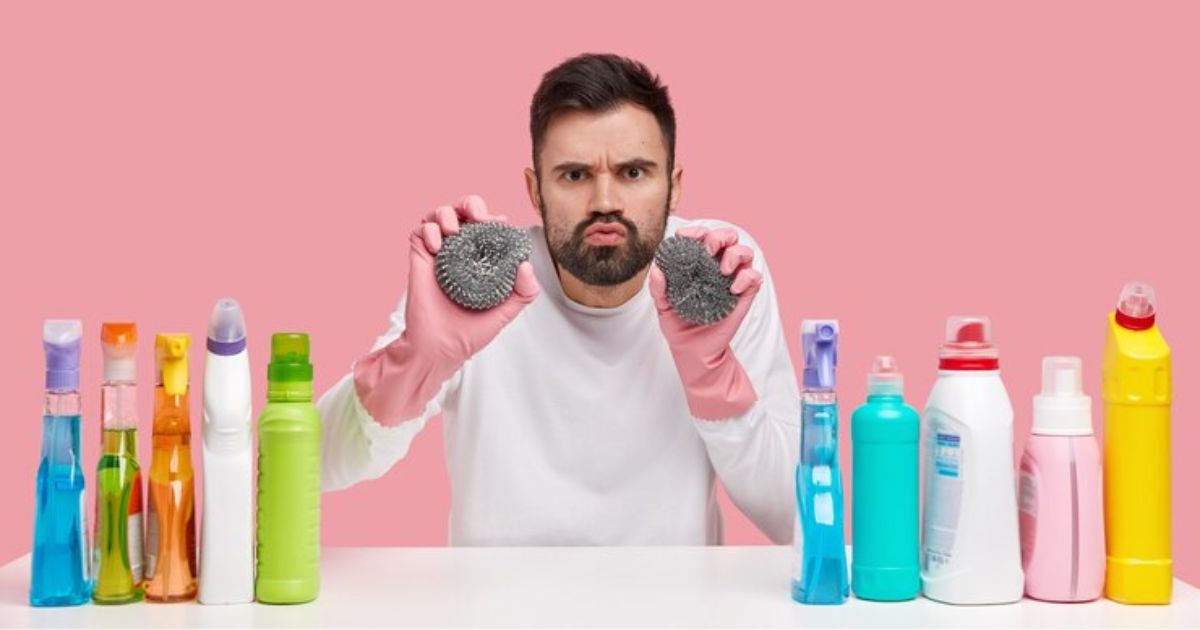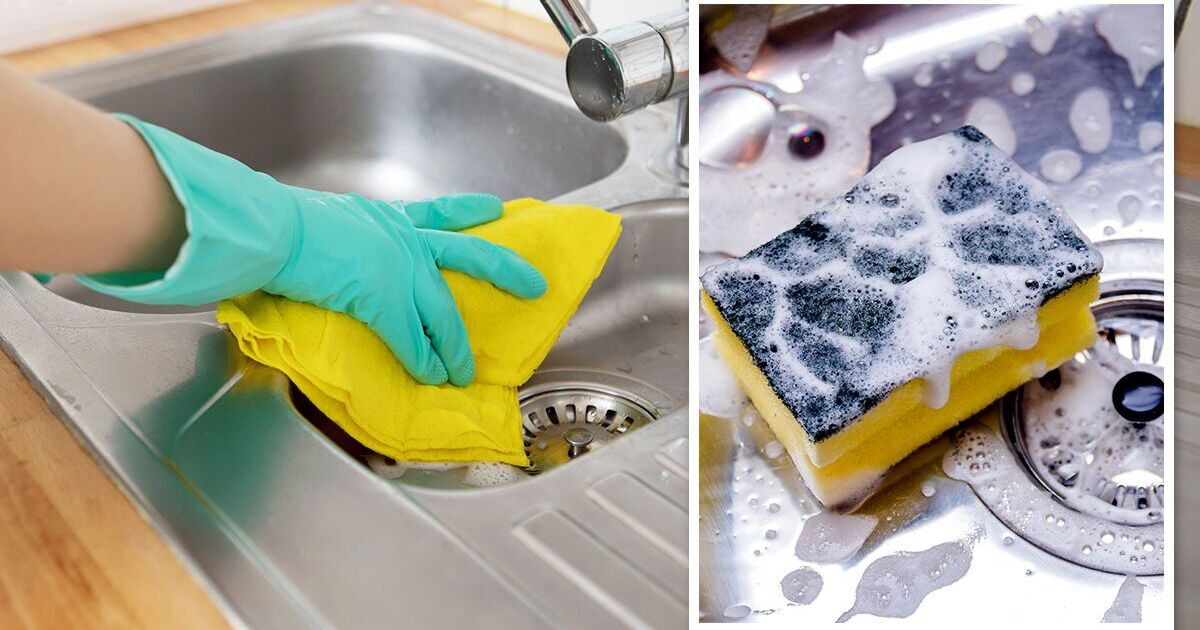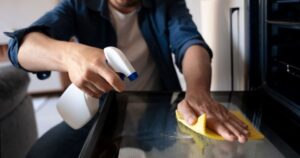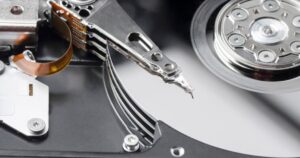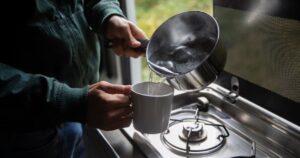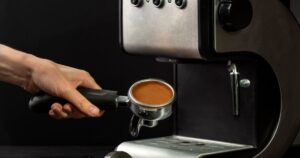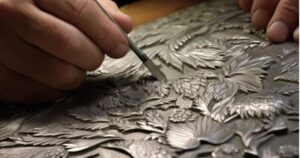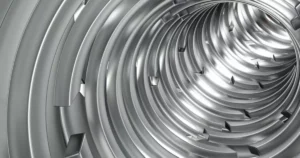You can use Scrub Daddy on stainless steel. It cleans without scratching. Its soft texture in warm water is gentle. In cold water, it becomes firm for tough cleaning. It’s safe for stainless steel because it doesn’t leave marks. Scrub Daddy is a good choice for keeping your stainless steel shiny.
Do you want to clean stainless steel without scratches? Can you use Scrub Daddy on stainless steel? Yes, you can! It’s a gentle yet effective sponge. Scrub Daddy works well in both warm and cold water. Try it and see how shiny your stainless steel can be!
Can you use Scrub Daddy on stainless steel? Yes, you can! Scrub Daddy is perfect for stainless steel. It cleans without scratching. It’s soft in warm water and firm in cold water. Use it to keep your stainless steel surfaces bright and clean. Try Scrub Daddy today
Properties of Stainless Steel
Stainless steel is a durable and resilient material commonly used in kitchens for appliances, sinks, cookware, and countertops due to its resistance to corrosion and staining. It provides a sleek and modern aesthetic while being relatively easy to clean and maintain. However, despite its durability, stainless steel can still accumulate dirt, grime, and fingerprints over time, requiring regular cleaning to maintain its shine.
Compatibility of Scrub Daddy with Stainless Steel
One of the frequent questions among users is whether Scrub Daddy can be safely used on stainless steel surfaces without causing damage. Fortunately, Scrub Daddy’s non-abrasive material makes it safe to use on stainless steel. Its gentle yet effective cleaning action helps remove dirt, grease, and stains without scratching or dulling the surface of the stainless steel.
Benefits of Using Scrub Daddy on Stainless Steel
Using Scrub Daddy on stainless steel offers several benefits. Firstly, it provides a convenient and efficient way to clean stainless steel surfaces without the need for harsh chemicals or abrasive scrubbers. Secondly, its unique texture allows for thorough cleaning, reaching into crevices and corners to remove stubborn grime. Lastly, Scrub Daddy’s versatility means it can be used for other cleaning tasks around the house, making it a versatile addition to any cleaning arsenal. Are stainless steel brake lines worth it?
Precautions and Tips for Cleaning Stainless Steel with Scrub Daddy
While Scrub Daddy is safe to use on stainless steel, there are still some precautions to keep in mind. Avoid using excessive force when scrubbing to prevent potential scratching, and always rinse the surface thoroughly after cleaning to remove any residue. Additionally, it’s recommended to test Scrub Daddy on a small, inconspicuous area of the stainless steel surface before proceeding with full-scale cleaning.
Alternative Cleaning Methods for Stainless Steel
If Scrub Daddy is not available or preferred, there are alternative cleaning methods for stainless steel. Mild dish soap and warm water can be used with a soft cloth or sponge to gently clean the surface. Alternatively, specialized stainless steel cleaners are available for tougher stains and grease buildup. Always follow the manufacturer’s instructions when using any cleaning product on stainless steel.
What is a Scrub Daddy and How Does it Work?
Scrub Daddy’s are quite unique and versatile sponges made of a patented blend of polyester fiber and food-safe silicone. They come in various colors and textures to suit different cleaning tasks. The silicone acts as millions of microscopic cleaners that safely scrub away stuck-on messes without damaging delicate surfaces like stainless steel.
How sturdy is Stainless Steel compared to other surfaces?
Stainless steel is known for its strength and durability. It stands up well to heat, moisture, and is highly resistant to corrosion and rusting. This makes it a premier material choice for appliances, cookware, sinks and other fixtures in the kitchen. However, its smooth, mirror-like finish can be easily scratched if harsh abrasives are used during cleaning.
Will a Scrub Daddy scratch stainless steel surfaces?
Because Scrub Daddies are made of soft, flexible silicone rather than a rough abrasive material, they are actually quite gentle on stainless steel and won’t scratch the surface like traditional steel wool pads can. The tiny silicone nubs maneuver deep into crevices to lift away stuck foods and stains without scraping the surface. As long as a light touch is used, Scrub Daddies are safer than many other cleaning tools on stainless steel.
How to properly use a Scrub Daddy on stainless steel sinks and appliances
To clean stainless steel sinks, appliances or cooking utensils with a Scrub Daddy, start by spraying or wiping the surface with soapy water. Rub the Scrub Daddy in gentle, circular motions across the steel to break up residue. Rinse thoroughly and wipe dry with a soft cloth to restore the polished look. Avoid rubbing too harshly which could potentially lead to very fine scratches over time.
Alternatives to using on stainless steel if you don’t have a Scrub Daddy
If you don’t have a Scrub Daddy on hand but need to clean stainless steel, some alternatives that won’t scratch the surface include damp microfiber cloths, baking soda paste, or commercial stainless steel cleaners. Make sure to rub in soft, circular motions and always rinse well afterwards to preserve the luster of the steel without marks. Avoid steel wool or other abrasives that could permanently mar the surface beauty.
When should you not use a Scrub Daddy on stainless steel?
While Scrub Daddies are generally safe for most stainless steel surfaces, it’s best to avoid using them on very delicate or distorted stainless that shows signs of wear. They may also not be suitable for commercial grade stainless used in professional kitchen equipment that sees high heat, heavy use and extreme messes on a daily basis.
Summary of using Scrub Daddies on stainless steel surfaces
In summary, yes Scrub Daddies can absolutely be used to safely clean most residential stainless steel sinks, appliances and cookware if a light touch and care is taken. Their soft silicone nubs provide powerful cleaning without the risk of scratching like abrasives can.
Always rinse well and wipe dry to preserve the shine. For professional grade stainless or heavy duty jobs, alternative cleaning methods may better suit the task. But for most light-to-medium stainless steel cleaning tasks at home, a Scrub Daddy works perfectly well.
Can You Use Scrub Daddy On Stainless Steel?
Stainless steel is a very sturdy and durable material commonly used for kitchen surfaces such as sinks, appliances, and cookware. Its shine and streak-free appearance can easily be maintained through proper cleaning methods.
The unique blend of flexible polyester fibers and food-safe silicone within Scrub Daddy scrubbers allows them to maneuver into narrow cracks and corners to lift away stuck foods and stains. Their malleable texture conforms tightly around contours while exerting just enough pressure to cut through debris. Another benefit is that their material is odor-resistant and stands up to heat so they can be used for a variety of tasks.
Can You Use Scrub Daddy On Stainless Steel?
Some stubborn messes may require a bit more scrubbing pressure. As long as one maintains a light touch without exerting too much force, a Scrub Daddy can handle most light-to-medium cleaning jobs on stainless steel just fine. Simply rinse the sponge frequently under running water to flush away loosened particles so it continues working effectively.
If particularly tough burned-on or carbonized food is stuck to the steel, it’s best to use a specialized stainless steel cleaner or polishing cream first before wiping with a damp Scrub Daddy for a streak-free shine. Scrubbing too rigorously in these situations risks marring the smooth surface over the long run.
| Scrub Daddy Benefits for Stainless Steel | Potential Risks |
| Made of soft, flexible silicone that won’t scratch like abrasives | Could lead to very fine scratches with vigorous rubbing over time |
| Conforms to surfaces and reaches into crevices | Not recommended for heavily used commercial equipment |
| Cuts through stuck-on messes without damage | Avoid on distorted or damaged areas of steel |
| Gentle circular motions clean effectively | Use stainless steel cleaner first for baked-on residues |
| Stores well and resists odors from food/chemicals | Not for cleaning extremely dirty professional kitchen wares |
| Affordable and reusable alternative to paper towels | Light cleaning only – not for burned or carbonized messes |
| Safer for sink and appliance surfaces than steel wool | Rinse and dry thoroughly to maintain shine and avoid water spots |
FAQs:
Does Scrub Daddy scratch stainless steel?
No, as long as a light touch is used. Scrub Daddy’s silicone nubs are gentler than abrasives and won’t scratch as long as excess pressure isn’t applied.
Can you use Scrub Daddy on stainless steel cookware?
Yes, Scrub Daddy is suitable for cleaning stainless steel pots, pans and other cookware as long as it’s not heavily burnt on residue. The soft silicone scrubs gently.
Can you use Scrub Daddy paste on a stainless steel sink?
Yes, applying a paste of baking soda or other cleanser and gently scrubbing with Scrub Daddy is a safe way to clean stainless steel sinks without scratching.
What surfaces can I use Scrub Daddy on?
Scrub Daddy can be used on many surfaces including stainless steel, glass, plastic, porcelain, wood and more. It’s also heat-resistant for use on cookware and appliances.
What are the weaknesses of Scrub Daddy?
It wears down over time with heavy use and may need to be replaced. It’s not suitable for heavily grimed commercial equipment or carbonized messes on stainless steel.
What is the lifespan of a Scrub Daddy?
The average lifespan of a Scrub Daddy when used regularly is 3-6 months. Heavy-duty or improper use may shorten its life while gentler cleaning extends it.
Conclusion:
In conclusion, the versatility of Scrub Daddy on stainless steel surfaces hinges on understanding its abrasive properties and the specific requirements of the stainless steel in question. While Scrub Daddy’s non-abrasive texture makes it suitable for gentle cleaning on many surfaces, its effectiveness on stainless steel depends on factors like the grade and finish of the steel.
In instances where the stainless steel is susceptible to scratching, opting for a softer cleaning material may be prudent. However, for stainless steel items with a robust finish or in less sensitive applications, Scrub Daddy can be a convenient and efficient cleaning solution.
It’s crucial to conduct a spot test in inconspicuous areas and use gentle pressure to prevent any potential damage. Ultimately, the question of whether you can use Scrub Daddy on stainless steel boils down to assessing the specific requirements and characteristics of the stainless steel surface at hand.
